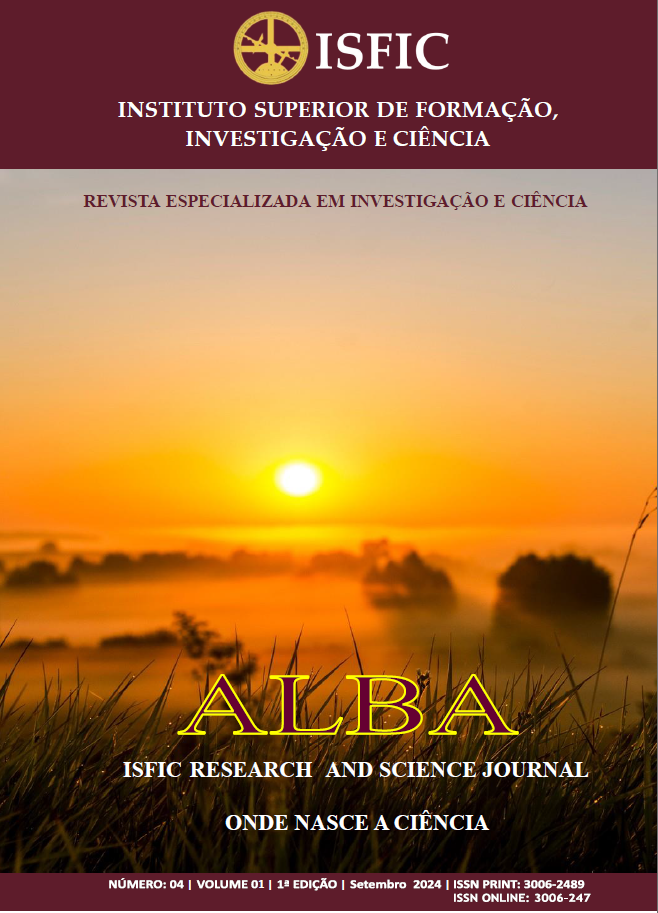The relationship between the Prime Rate and the components of the business environment in Mozambique
Keywords:
Prime Rate; Business Environment; MIMO; Mozambique.Abstract
In recent years, Mozambique has experienced remarkable economic growth, with diversification in various areas of the economy. One of the pillars of this growth is the Prime Rate, a reference interest rate set by the central bank. This rate directly influences the loan and financing rates in the market. Additionally, the organizational climate, which reflects the internal environment of companies, has also undergone significant transformations in Mozambique, being influenced by cultural traditions, social values, and political decisions. The study seeks to understand the relationship between the components of the business environment and the Prime Rate in Mozambique, unraveling how these elements mutually influence each other in the country's socio-economic context. The analysis revealed that the organizational climate in Mozambique is influenced by the Prime Rate. Specifically, a 1% increase in the Prime Rate results in a significant drop in the organizational climate. Regarding the employment outlook, there is a significant negative relationship with the Prime Rate. On the other hand, current employment shows a positive relationship with the Prime Rate. As for the price outlook, although there are indications that an increase in the Prime Rate might decrease the price outlook, this relationship is not statistically significant. The models used to evaluate these relationships vary in their ability to explain the variations, with the organizational climate model explaining 29.6% of the variation and the price outlook model only 9.39%.
Downloads
References
Banco Mundial. (2018). World Development Report 2018: Learning to Realize Education’s Promise. Washington, DC: World Bank.
Banco Mundial. (2019). World Development Indicators 2019. Washington, DC: World Bank.
Banco Mundial. (2019). World Development Indicators 2019. Washington, DC: World Bank.
Barro, R. J., & Lee, J. W. (2013). A new data set of educational attainment in the world, 1950–2010. Journal of Development Economics, 104, 184-198.
Bratton, M., & van de Walle, N. (1997). Democratic experiments in Africa: Regime transitions in comparative perspective. Cambridge University Press.
Cário, S. A. F., & Sigaúque, E. S (2021). Investimento directo externo e desenvolvimento económico africano: Estudo de caso da economia moçambicana.
Catsossa, L. A. (2021). Globalização do capitalismo extrativista, recursos naturais e o neocolonialismo na África: desafios e perspectivas para Moçambique. ENTRE-LUGAR, 12(23), 310-355.
Farhi, M. (2007). Análise comparativa do regime de metas de inflação: pass-through, formatos e gestão nas economias emergentes. Texto para discussão IE/Unicamp, 127, 1-58.
Fernandes, A., & Pereira, J. (2018). Monetary Policy in Emerging Economies: The Case of Mozambique. Journal of African Economics, 27(2), 245-268.
Gil, A. H. N., Borges-Andrade, J. E., & Oliveira, A. U. C. (2019). Metodologia científica: teoria e aplicação na educação a distância. Universidade Federal do Vale do São Francisco.
Gujarati, D. N., & Porter, D. C. (2009). Econometria básica. AMGH Editora.
Harrison, A., Lin, J. Y., & Xu, L. C. (2014). Explaining Africa's (Dis)advantage. World Development, 63, 59-77.
Instituto Nacional de Estatística [INE] (2023). Indicadores de Clima Económico. Maputo: Autor.
Lakatos, E. M. (2017). Metodologia do trabalho científico: projectos de pesquisa, pesquisa bibliográfica, teses de doutorado, dissertações de mestrado, trabalhos de conclusão de curso. São Paulo: Atlas
Mawson, J. (2016). Regional economic development in Europe: a review of key theoretical perspectives and their application. Papers in Regional Science, 95(1), 5-20.
Mutondo, J., Villisa, D., Matchaya, G., Wilson, D., Nhlengethwa, S., & Nhemachena, C. (2019). The Challenges of Access to Financial Services in the Agricultural Sector in Mozambique. Ministry of Agriculture and Food Security.
Nguyen, D. K. (Ed.). (2022). Handbook of Banking and Finance in Emerging Markets. Edward Elgar Publishing.
Pereira, J. (2016) Clima Organizacional: Teoria e Prática. São Paulo: Editora Empresarial.
Portugal-Perez, A., & Wilson, J. S. (2012). Export performance and trade facilitation reform: Hard and soft infrastructure. World Development, 40(7), 1295-1307.
Transparency International. (2021). Corruption Perceptions Index 2021.
UNCTAD. (2020). World Investment Report 2020. United Nations.
World Bank (2023). Doing Business. [Website]. Recuperado em 16 de março de 2023: https://portugues.doingbusiness.org/pt/custom-query







